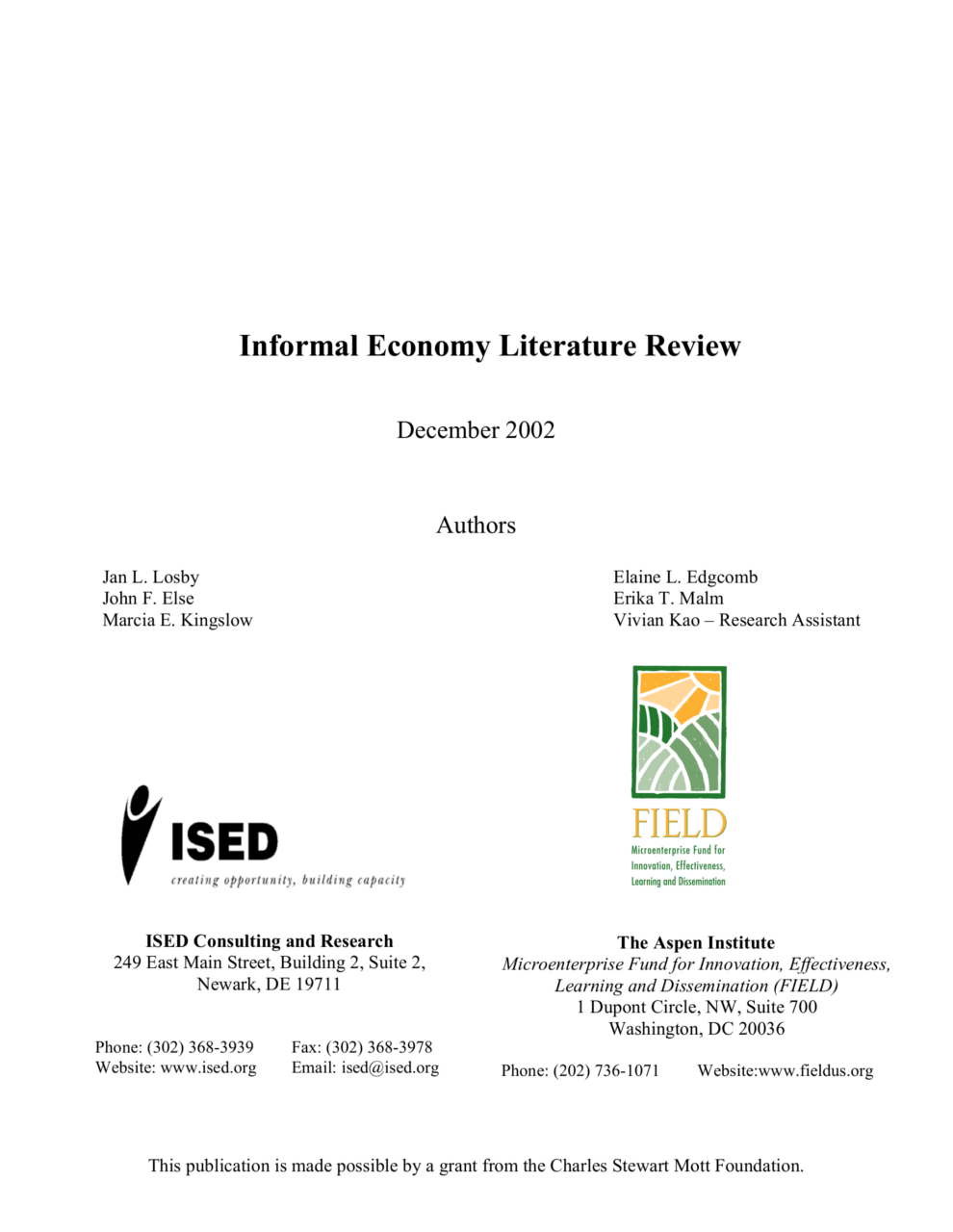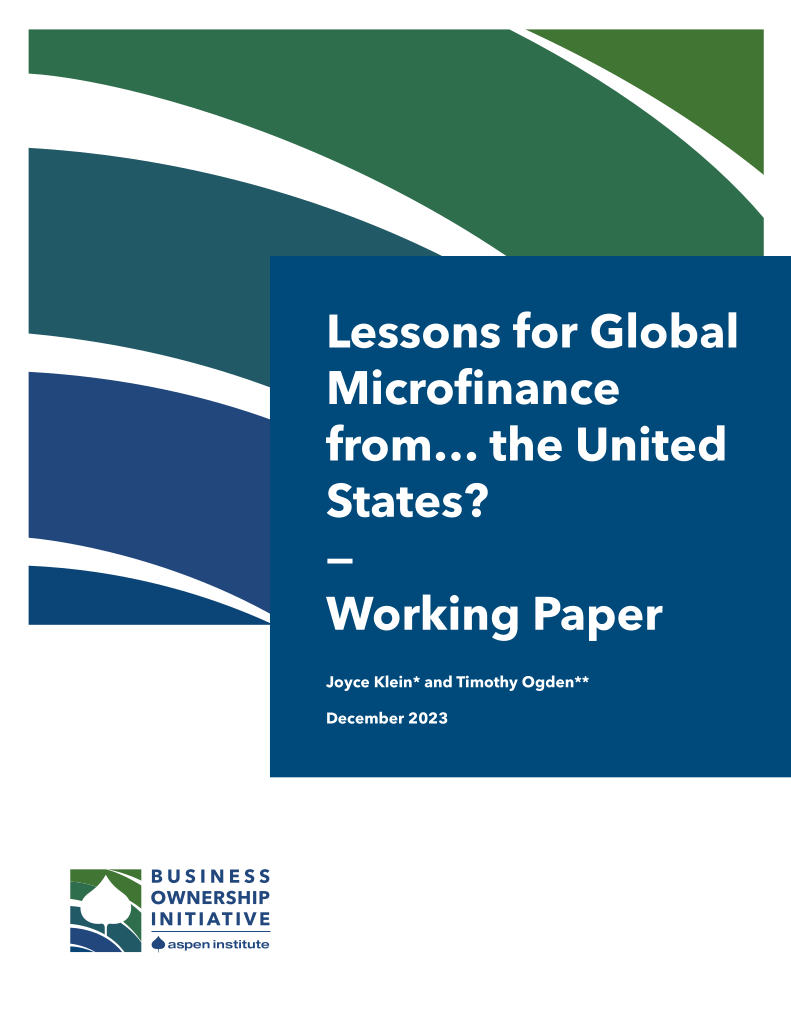Some people engage in legal but informal work in the United States in a system of cash-only exchanges. These individuals are operating unregistered businesses or engaging in under-thetable work. This type of economic activity is often called “informal work” or referred to as “the informal economy.” There is a natural link between the informal economy and the services provided by microenterprise programs. Could these informal entrepreneurs be potential new clients? What would it take to move these individuals into licensed small business owners or to grow their after-hours jobs into an income-generating business?
The Institute for Social and Economic Development (ISED) and The Aspen Institute both received funding from the Charles Stewart Mott Foundation to examine the informal economy and its intersection with microenterprise in the United States. ISED and Aspen are conducting ethnographic studies of informal economic activities in three separate urban communities. This qualitative research examines the attitudes and behaviors of informal workers and explores the aspects of working informally that are appealing and may keep people from taking steps to formalize their enterprises.
- ISED is conducting a qualitative study of people in the African-American community who are engaged in informal work. Fifty in-person qualitative interviews will be conducted—25 in Chicago and 25 in Baltimore.
- Aspen Institute is conducting a qualitative study of people in the Latino community engaged in the informal economy in the New York metropolitan area. Forty qualitative interviews will be conducted, including fifteen people who are operating informally and receiving assistance from microenterprise programs. Aspen will also look at the practices of these programs
A first step in the Informal Economy Project is to review the work that has already been done and identify key features of the informal economy. This document represents a joint effort by ISED and The Aspen Institute. A clear message from the review of literature is that informal work activities are a significant presence in the U.S. economy. We discuss some preliminary issues confronting microenterprise programs which plan to offer services to informal economy entrepreneurs.
This first publication from the Informal Economy Project lays the foundation for the in-depth work that will take place in the three cities.


